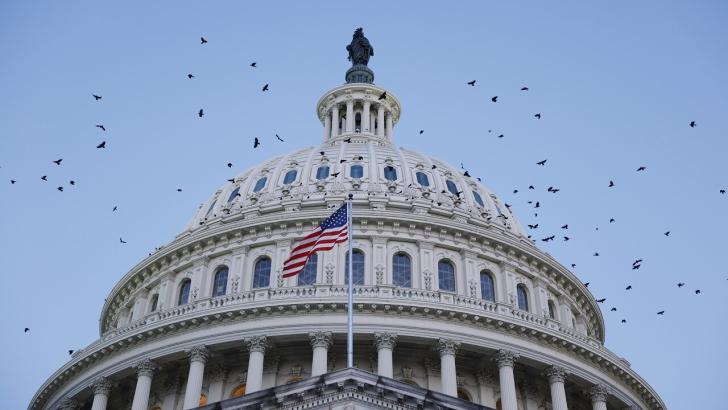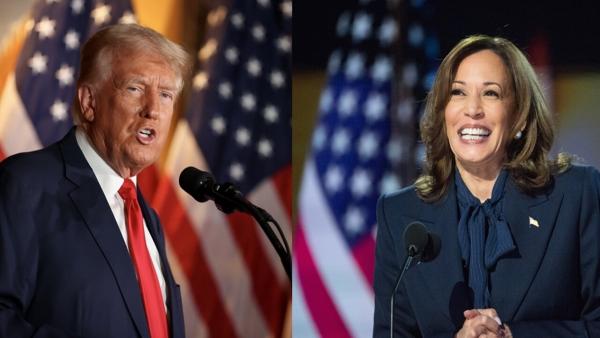US Election 2024: Essential guide to the electoral college

Thinking of having a bet on the US election? First read our quick guide to the Electoral College to find out why it matters, how it decides who wins the White House and more...
-
How the Electoral College works and why it matters
-
Candidates need 270 delegates to win the presidency
-
Essential info for understanding US Election betting
-
Keep up to speed with the US Election in our live blog
The Betfair Exchange market on who will win the US presidential election on 5 November indicates that this could be one of the closest contests in American history. Donald Trump and Kamala Harris know that every vote counts and who wins the White House could come down to the finest of margins.
If you are going to bet on the outcome, it is essential that you understand how the American electoral college works. It can sound complicated but it is really quite simple.
What is the US electoral college?
On 5 November, Americans will vote for their preferred candidate for president. Their votes go towards electing officials to the Electoral College. These officials are known as "electors".
The Electoral College consists of 538 electors. To win the presidency a candidate must receive the votes of 270 electors which is why you will hear commentators refer to 270 as "the magic number" on election night.
How does the electoral college work?
The number of electors from each state differs and is broadly in line with the size and population of the state. For example, Texas has 30 electors while Delaware has only three.
After the election, when the votes have been counted, the electors will meet to elect the president and vice president based on the election results from their respective states.
It is their job to confirm the outcome of the election.
Popular vote v electoral college
It is possible for a candidate to win the popular vote but lose the election. Just ask Hillary Clinton who won the most votes overall from US citizens in 2016 but lost the election to Trump because he won the most electoral college votes. Or Al Gore who suffered the same fate against George W. Bush in 2000.
At two out of the six US elections this century, the winner did not win the popular vote.
Could it happen again in 2024? At the time of writing, the Betfair Exchange markets indicate that we could see that outcome.
Trump is the narrow favourite in the election winner market while Harris is comfortably ahead in the popular vote winner betting.
This is why there is a Betfair Exchange market on the chances of the election winner losing the popular vote.

How is this possible? A candidate could squeak home by winning 50.1% of the vote in Texas and in the process pick up all of its 40 electoral votes. They could win by small margins in other states with large amounts of electors, while their opponent may win by a landslide in several states with fewer electors.
The one with the most electors wins the presidency, so a candidate could become president by winning a number of tight state races, despite having fewer votes across the nation. This is why you will hear a lot of talk about campaign strategy and paths to the White House.
Every vote counts but, depending on where you are in America, some votes may end up counting more than others. It is up to each candidate and their teams to plot their route to victory through the electoral college system.
If this sounds peculiarly American bear in mind that it is similar to the way a British political party can win a majority of seats in the Westminster parliament without winning the majority of votes across the UK.
All electoral systems have their quirks and the potential for reform. It is the job of candidates to understand the system and strategise accordingly. The winner on 5 November will be the one who does the best job of navigating the electoral college system.
What happens if the electoral college is tied?
The 12th ammendment was introduced after the tied election of 1800 to solve a potential deadlock.
It says that if no candidate wins a majority of the 538 electoral votes, the election will be decided in the House of Representatives where each state delegation will have one vote. The winner will be the presidential candidate who receives the votes of 26 or more states.
The vice president will be elected in the Senate in the event of a tied election.
Now read 2024 Presidential Election Betting: The latest data from the Betfair Exchange
GET £50 IN FREE BETS MULTIPLES WHEN YOU SPEND £10 ON THE BETFAIR SPORTSBOOK
New customers only. Bet £10 on the Betfair Sportsbook at odds of min EVS (2.0) and receive £50 in FREE Bet Builders, Accumulators or Multiples to use on any sport. T&Cs apply.
Prices quoted in copy are correct at time of publication but liable to change.



